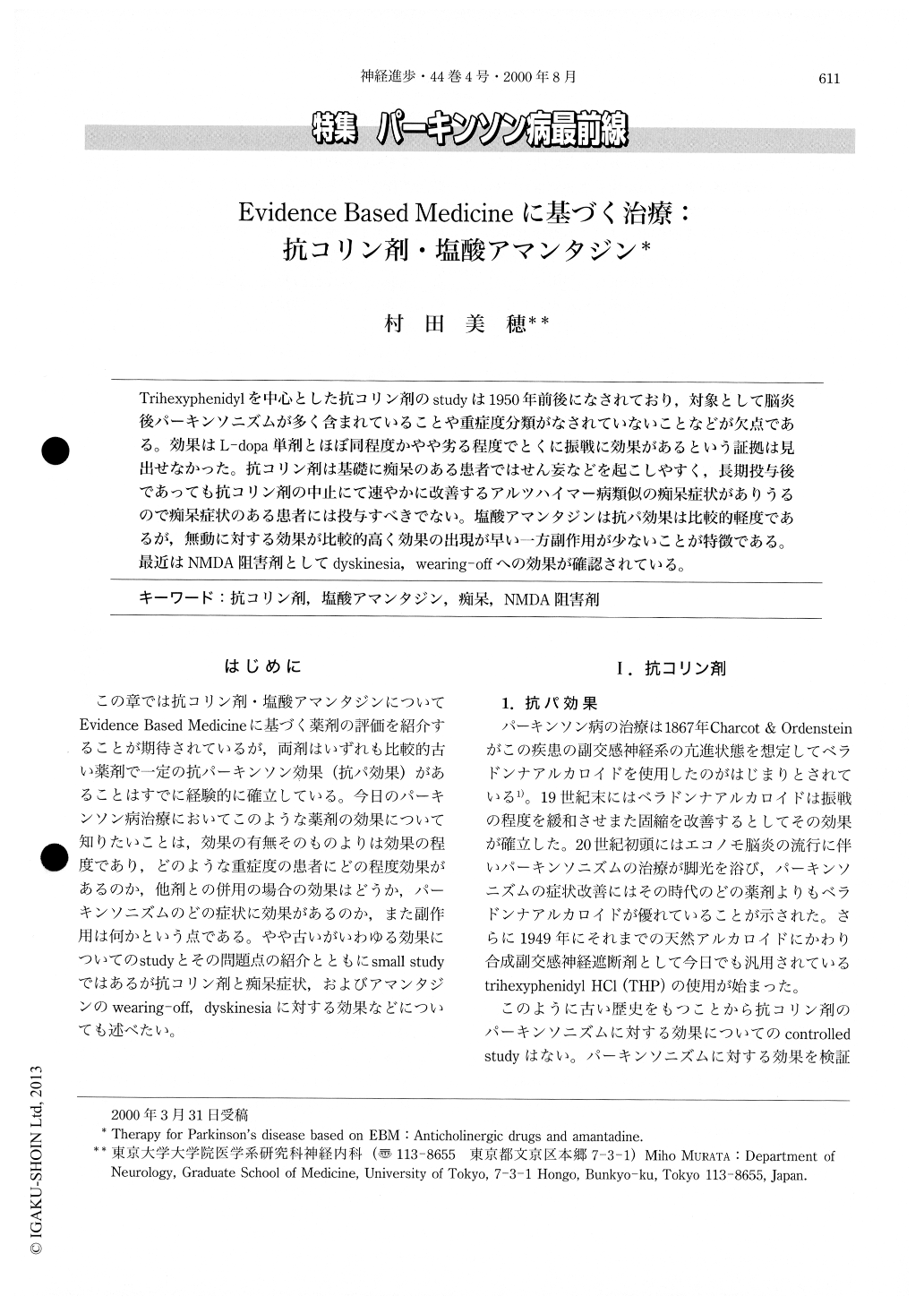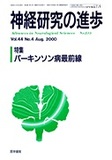Japanese
English
- 有料閲覧
- Abstract 文献概要
- 1ページ目 Look Inside
Trihexyphenidylを中心とした抗コリン剤のstudyは1950年前後になされており,対象として脳炎後パーキンソニズムが多く含まれていることや重症度分類がなされていないことなどが欠点である。効果はL-dopa単剤とほぼ同程度かやや劣る程度でとくに振戦に効果があるという証拠は見出せなかった。抗コリン剤は基礎に痴呆のある患者ではせん妄などを起こしやすく,長期投与後であっても抗コリン剤の中止にて速やかに改善するアルツハイマー病類似の痴呆症状がありうるので痴呆症状のある患者には投与すべきでない。塩酸アマンタジンは抗パ効果は比較的軽度であるが,無動に対する効果が比較的高く効果の出現が早い一方副作用が少ないことが特徴である。最近はNMDA阻害剤としてdyskinesia,wearing-offへの効果が確認されている。
I reviewed trials of anticholinergics and amantadine-HC1 for Parkinson's disease. Synthetic anticholinergics “trihexyphenidyl” was the best drug for parkinsonism in the 1950's and is an important drug for Parkinson's disease even now. Anticholinergic drugs can cause reversible memory disturbance and confusional state especially in patients with intellectual impairment. Therefore the drug should be avoided in patients with some cognitive decline. Amantadine-HC1 was originally an antiviral agent. The quality of the improvement of parkinsonism was inferior to that obtained with levodopa, but the side effects were fewer. Recently amantadine has been shown to antagonize central NMDA receptors at therapeutically relevant concentrations. Furthermore it was reported that blockade of striatal NMDA receptors reversed levodopa induced dyskinesia and motor fluctuation in animal models of Parkinson's disease. Amantadine is now reevaluated as a useful drug for levodopa induced dyskinesia and motor fluctuation.

Copyright © 2000, Igaku-Shoin Ltd. All rights reserved.


